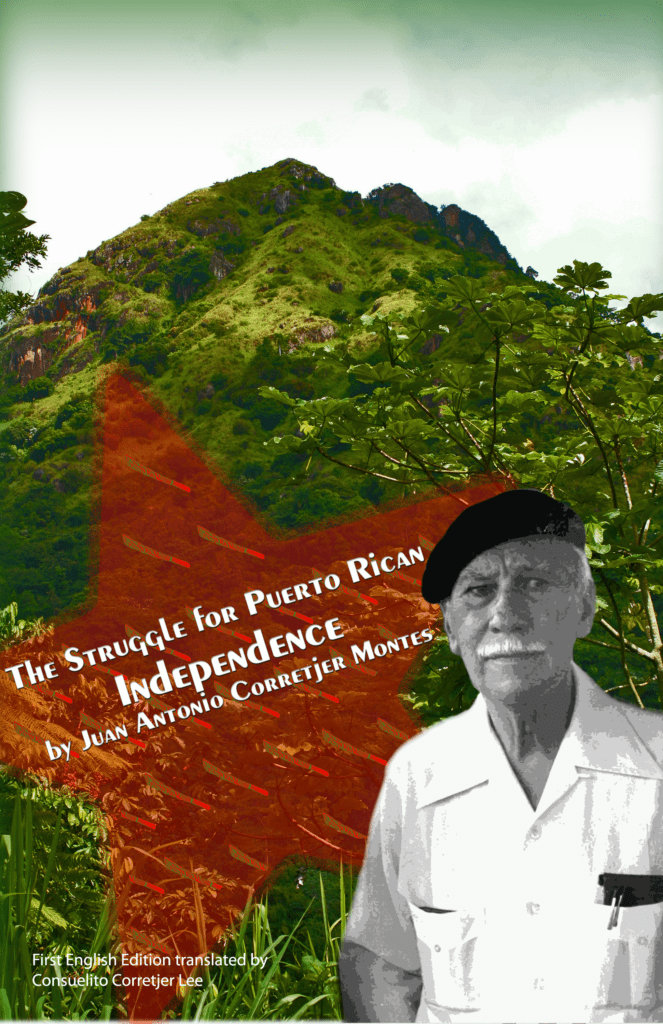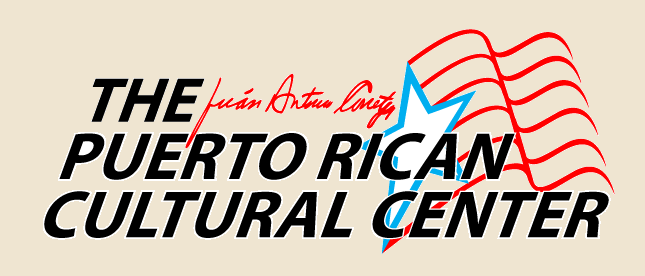Biography/Collection History:
Poet, essayist, journalist, distinguished orator, revolutionary, and independentista Juan Antonio Corretjer Montés was born in Ciales, Puerto Rico on March 3, 1908, to a politically active, pro-independence family. Having gravitated towards literature and history from an early age, Corretjer began to write poems inspired by his homeland, his opposition to US imperialism, and his vision of a different future for Puerto Rico. In 1927, he started working as a reporter, editorialist, and columnist at the newspaper La Democracia. He joined the Partido Nacionalista de Puerto Rico (PNPR Nationalist Party of Puerto Rico) in 1930 and in 1934 he became a PNPR emissary, traveling to Cuba, Haiti, and the Dominican Republic to seek international support for Puerto Rican independence.
Upon his return to Puerto Rico, Corretjer was the first Puerto Rican independentista to be jailed for content of grand jury in 1936; he was then tried for seditious conspiracy and given a 10-year sentence for refusing to provide the minutes and logs of the PNPR to the federal court. Along with Pedro Albizu Campos and other PNPR leaders, Corretjer was exiled on June 7, 1937, and imprisoned in the Atlanta Federal Penitentiary. Following his June 4, 1942, release, he lived in New York City, where he worked with both the Nationalist Party and the Communist Party USA. He also met Consuelo Lee Tapia, a member of the Communist Party and fellow pro-independence activist there when they worked together on the newspaper Pueblos Hispanos until 1944, when the newspaper folded. In 1946, the Corretjers returned to Puerto Rico and remained politically active until their deaths. In 1950, the Puerto Rican police arrested him following the PNPR’s unsuccessful uprising. While in prison he wrote one of his most famous poems, Corretjer founded numerous newspapers and independentista groups, including Acción Patriótica Unitaria in 1959 and the Liga Socialista Puertorriqueña in 1964. Both organizations advocated working class power, an end to US imperialism in Puerto Rico, and across Latin America and freedom for all Puerto Rican political prisoners. In 1969, Corretjer, along with Consuelo Lee, were arrested and accused of conspiracy but charges against them were officially dismissed in 1971. Despite efforts to silence the Corretjers, they remained leaders of Puerto Rico’s pro-independence movement and the fight for working class political representation and participation.
During the 1970s, the Corretjers also formed a close political connection to the Puerto Rican community in Chicago, based on their shared commitment to a free Puerto Rico and opposition to the repression and discrimination Puerto Ricans faced. Juan Antonio Corretjer became the namesake for the Puerto Rican Cultural Center. He continues to inspire the political mobilization that still characterizes the organization today, as it continues to fight gentrification and political repression both in Chicago and in Puerto Rico. He authored six books of poetry and roughly ten books on Puerto Rican history and politics. Three of his best-known publications are La Lucha Por La Independencia de Puerto Rico (published in 1949), El Líder de la desesperación (published in 1972), and La Patria Radical (published in 1975). Puerto Rican singer Roy Brown set several of Corretjer’s poems to music in Distancias (published in 1957), including two of his most famous,”Boricua en la luna” and “En la vida todo es ir.” Juan Antonio Corretjer died on January 19, 1985.
Corretjer’s La Lucha por la Independencia (The Struggle for Independence) was translated by Consuelo Lee Corretjer, his and Consuelo’s daughter, in 1999 and published as an act of solidarity by the Puerto Rican Cultural Center in 2008. Jonathan Rivera Lizardi, the young Puerto Rican collaborator of La Voz del Paseo Boricua, was so enthused about its publication by the PRCC, that he designed an alternative cover for the book, below. Unfortunately, it was not used.

Consuelo Lee de Corretjer (née Tapia), also known as Consuelo Lee Corretjer, was born in San Juan, Puerto Rico, on March 29, 1904, to an upper-class family. Two events shaped her political consciousness and led to her lifelong support for Puerto Rican independence and communism. One was the 1937 Ponce Massacre, when Puerto Rican police, acting under the orders of the U.S.-appointed governor Blanton Winship, shot peaceful PNPR marchers, killing 20 and wounding over 150. The second was the Spanish Civil War, which intensified her profound opposition to fascism. In the 1930s, she moved to New York City, where she joined the Communist Party USA (CPUSA). Her first husband, Leonard Lamb, was a communist who fought to defend the Spanish Republic as part of the Abraham Lincoln Brigade. She worked with Juan Antonio Corretjer, who she later married, in the publication of Pueblos Hispanos from 1943 to 1944. Lee Corretjer quit the CPUSA and traveled with Juan Antonio to Puerto Rico, where she lived for the rest of her life. In Puerto Rico both she and Juan Antonio joined the Partido Comunista de Puerto Rico (PCPR, Communist Party of Puerto Rico). She established study groups in working class neighborhoods in Jayuya, which were so effective they spread to several other communities across Puerto Rico. She continued this work after the PCP expelled her and her husband from the party in 1948 because it considered them too nationalistic. Lee Corretjer remained politically active. She helped found Acción Patriótica Unitaria in 1959 and was a member of the Liga Socialista Puertorriqueña. She wrote El Alfabeto Patriótico (The Patriotic Alphabet), which teaches the alphabet using key figures and events in Puerto Rican history.
She also wrote poetry, many of which are in her book Con un hombro menos (With one shoulder less). To challenge individualism and to promote collective caring, she rephrased the common saying, “Live and let live” to “Life and help others to live,” which is now the slogan of the Puerto Rican Cultural Center in Chicago. She dedicated much of her latter years to the struggle to free Puerto Rican political prisoners. It should also be noted that Lee Corretjer was an extraordinarily talented pianist and taught piano to many prominent musicians. Consuelo Lee Corretjer died on June 28, 1989.
To read Juan Antonio Corretjer’s political essays, click on the image:
1898-1998Recopilación de algunos de los materiales de Corretjer sobre el 1898 de la colección de Casa Corretjer. Hecha y publicada como parte del esfuerzo de comprender mejor nuestro siglo de lucha a consecuencia de la invasión de Estados Unidos a Puerto Rico, Cuba y Filipinas.
Impreso en 1998
Casa Corretjer
Calle Betances, Esq. Corretjer, Ciales, Puerto Rico 00638 (787) 871-1668







